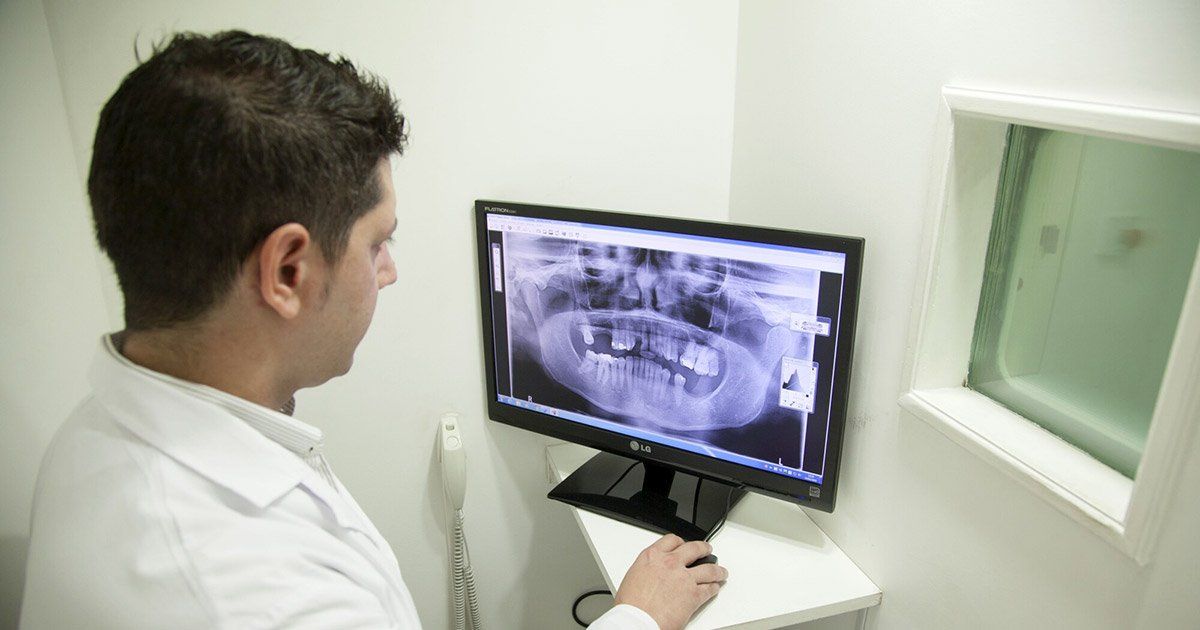Everything You Need to Know About Dental X-Rays
A dental x-ray is vital for assessing your oral health. Check out this thorough guide to learn more about dental x-rays and their importance.
Dental anxiety affects up to 36% of the American population. This leads to people skipping out on much-needed dental work. If you're in this population, we've provided this guide on getting a dental x-ray to help ease some of your anxiety.
It's a fact that dental x-rays provide a comprehensive oral exam. They help us see what's going on beneath the surface of your teeth and gums. X-rays allow us to detect problems early when they're more easily treated.
Here's everything you need to know about dental x-rays to prepare you for your next appointment.
What Are Dental X-Rays?
Dental x-rays are a type of radiograph that produces images of the inside of your mouth. The images produced show the bones, teeth, and soft tissues in your mouth. They can also show impacted teeth, abscesses, tumors, and other abnormalities.
Dental x-rays use a small amount of ionizing radiation to produce the image. The amount of radiation you're exposed to is very low and considered safe. In fact, you're exposed to more ionizing radiation from everyday activities like flying in an airplane or taking a cross-country road trip.
The American Dental Association (ADA) and the Food and Drug Administration (FDA) have both concluded that the advantages of dental x-rays far outweigh any risks.
What Are the Different Types of Dental X-Rays?
Intraoral and extraoral dental x-rays are the two most common types of dental x-rays. Intraoral x-rays are taken inside your mouth. They give your dentist a close-up view of your teeth, gums, and jawbone.
Extraoral x-rays are taken outside of your mouth. They give your dentist a bird's eye view of your teeth and jaws.
Bitewing X-Rays
Bitewing x-rays are the most common type of intraoral x-ray. They show your dentist the tops of your teeth (crowns) and the bones that support them (roots). Bitewing x-rays detect:
- Cavities
- Gum disease
- Bone loss
Periapical X-Rays
Periapical x-rays show your dentist the entire tooth, from the crown to the root. They're used to detect:
- Cavities
- Abscesses
- Tumors
- Cysts
- Impacted teeth
Panoramic X-Rays
Panoramic x-rays show your dentist a wide view of your mouth, including your teeth, gums, and jawbone. They're used to detect:
- Cavities
- Impacted teeth
- Tumors
- Cysts
- Abnormalities in the jawbone
Your dentist will decide which type of x-ray to take based on what they're looking for. Sometimes you'll need different types of x-rays to get a complete picture. Check out our
additional
services here.
Before Your Dental X-Ray
You don't need to do anything special before having a dental x-ray taken. Just show up to your appointment on time.
If you're pregnant, let your dentist know. Dental X-rays are completely safe for pregnant women, but dentists may take additional precautions to protect the developing fetus.
During Your Dental X-Ray
Your dentist or a dental hygienist will position you in an upright position in the dental chair and place a lead apron over your lap to protect you from the x-ray.
For intraoral x-rays, you'll bite down on a small, rectangular piece of plastic called a bitewing tab. The tab holds the x-ray film in place while it's being taken.
For extraoral x-rays, your head will be positioned next to the x-ray machine. The x-ray film will be placed in your mouth, and you'll be asked to bite down on it.
You'll need to hold still while the x-ray is being taken. It only takes a few seconds.
After Your Dental X-Ray
You can go about your day as usual after having a dental x-ray taken. There are no side effects or recovery time.
Your dentist will develop the x-ray film and review it to look for any problems. If they find anything, they'll discuss the next steps with you.
How Often Do I Need Dental X-Rays?
The frequency of dental x-rays depends on your individual oral health. People with good oral health and no history of cavities or other problems may only need x-rays every two to three years.
People with a history of cavities or other problems may need x-rays more often. Your dentist will decide how often you need them based on your oral health history and the results of your last exam.
Are There Any Risks Associated With Dental X-Rays?
Dental x-rays are considered safe, and there are no known risks associated with them.
As with any type of radiograph, there is a small amount of ionizing radiation involved. However, the amount of radiation you're exposed to is very low and considered safe.
If you're pregnant or think you may be pregnant, tell your dentist before having a dental x-ray. Pregnancy can cause oral health issues owing to unique hormone adjustments, so it's essential to get your teeth checked during pregnancy. Dental X-rays have been shown to have a very low risk of harm to a fetus; nevertheless, some women choose to postpone dental X-raying until after the first three months, when fetal development is crucial.
How Much Do Dental X-Rays Cost?
Dental x-rays are typically covered by dental insurance. However, the amount of coverage varies from plan to plan. If you don't have dental insurance, or if your insurance doesn't cover dental x-rays, the cost will depend on the type of x-ray you need.
Intraoral x-rays cost between $20 and $70, while extraoral x-rays may cost between $50 and $200. Panoramic x-rays usually cost between $100 and $250. If you need more than one type of x-ray, the total cost will depend on the number and type of x-rays.
Some dental offices offer discounts for x-rays taken as part of a routine dental exam. If you're concerned about the cost of dental x-rays, talk to your dentist. They may be able to offer a payment plan or suggest other options.
Find a Reputable Dentist
We hope that with this guide to dental x-rays you're now feeling more informed about what to expect. Remember that dental x-rays are generally considered safe, and they're an important part of maintaining good oral health.
If you're looking for a dentist in New York, NY, and are due for a dental exam and x-rays, or if you have any questions about dental x-rays, contact our office today to schedule an appointment. Our team at Riverside Dental is experienced in all aspects of dentistry, and we're here to help you keep your smile healthy and bright.
Request an appointment today to get started on your dental journey.




